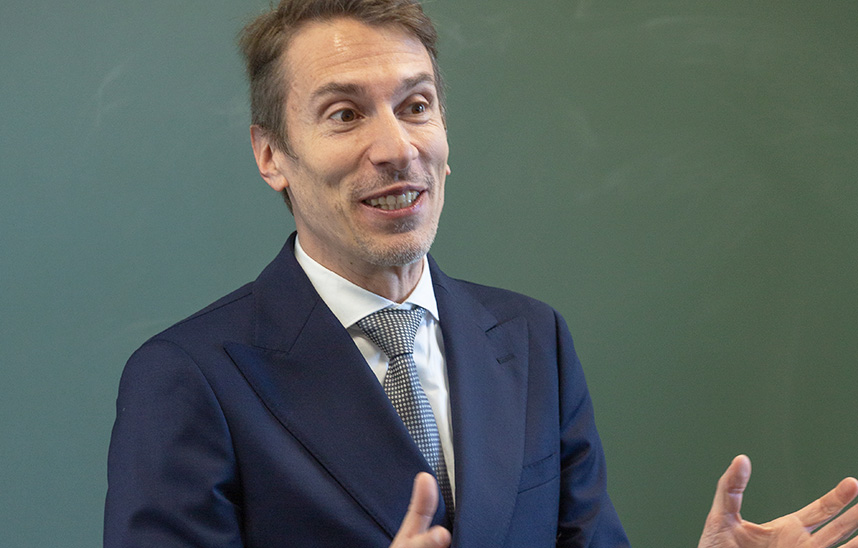"Only with a truly approach multidisciplinary will we be able to meet the challenges of the future."
Christian Greco, director of the Egyptian Museum of Turin, has given a lecture lecture at the University of Navarra.

FotoManuelCastells/Christian Greco, director of the Egyptian Museum of Turin, during the session he gave to the students of Diploma in Archaeology.
Coinciding with the 200th anniversary of the inauguration of the Egyptian Museum in Turin (Italy), its director, Christian Greco, has given a session to students of the Diploma in Archaeology of the School of Philosophy and Letters of the University. In his speech, the expert has advocated to strengthen the lines of research, work and knowledge dissemination that in recent years have been developed around the so-called Humanities Digital.
As he pointed out, "the digital revolution has already profoundly transformed the way we work". As examples, he alluded to the use of techniques such as photogrammetry or 3D modeling, "with which archaeologists can document the excavation process or reconstruct vestiges of the past with millimetric precision"; diagnostic imaging, "which allows us to look inside a still-sealed sarcophagus"; or the Digital Communication, "which financial aid us to create virtual work environments where scholars from around the world can connect and compare their data of research".
In this sense, asked about the role of the humanist in a context of continuous technological advances, Greco has defended that "the data that provide the techniques related to the Humanities Digital are increasingly detailed and complex, so they require an even higher level of interpretation by professionals in the humanistic field". He has also advocated strengthening the relationship between scientists and humanists, far from dogmatism, and that bets on a shared language, in order to "unravel together the past and address the complexity of the contemporary world": "A truly approach multidisciplinary is the only method we have to face the challenges of the future.
The director of what is the oldest Egyptian museum in the world and the second most important after Cairo, also made reference letter to the challenges facing museums: "We have to rethink the role of museums of the future without forgetting the reason why they were founded: to be a space to know and preserve our past". According to the expert, although in the coming decades there will be changes related to the enjoyment of culture, which will lead to new organizational, architectural and experiential solutions to meet the needs of the contemporary viewer, "the work of museums should continue to be to enhance the visual, aesthetic and intellectual experience of visitors, trying to provide the necessary information to enrich the understanding of our past. At final, the future of museums should be, as it has always been, the research and the knowledge dissemination".




